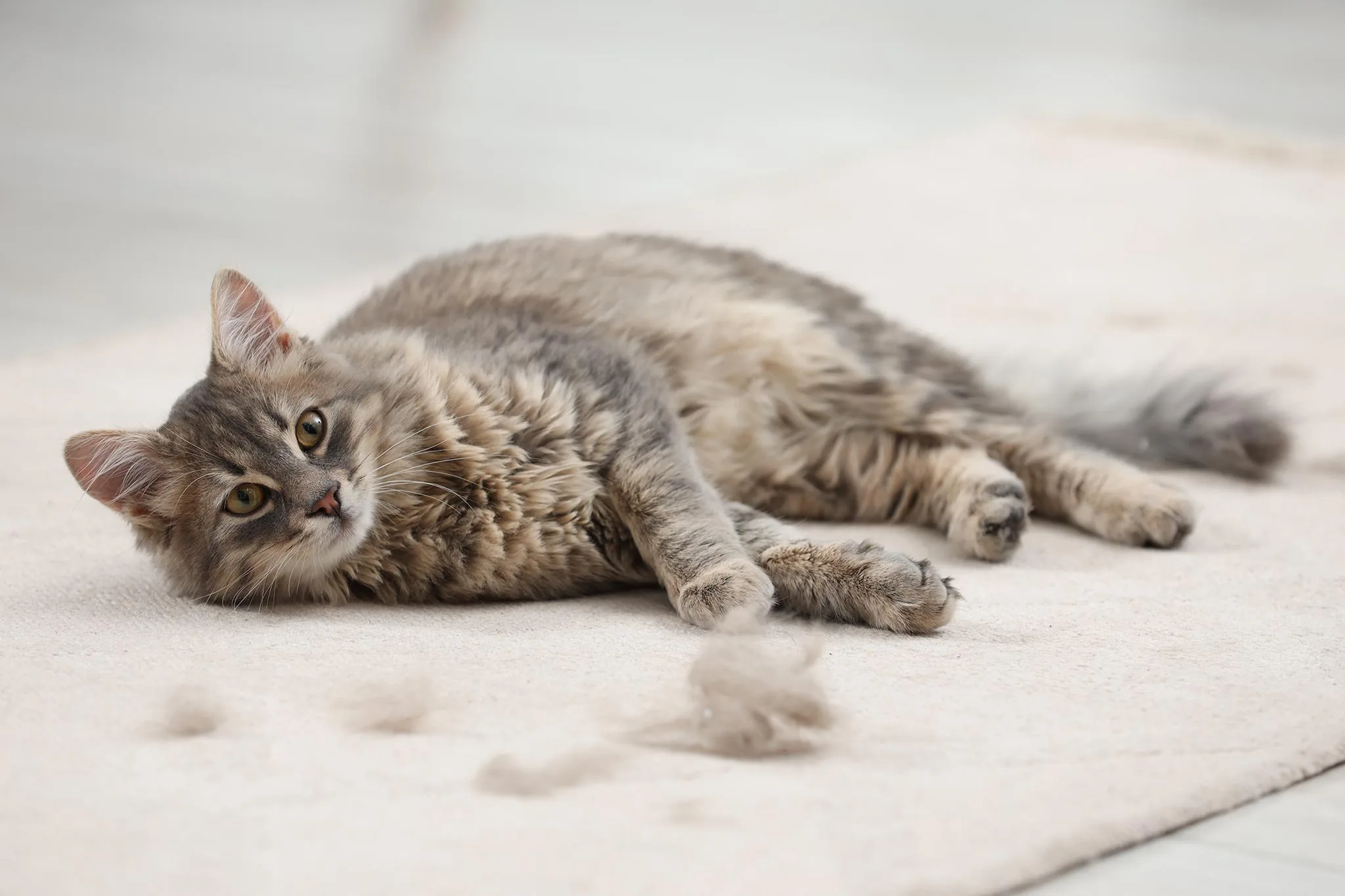
Why is My Cat Losing Hair?
If you’ve noticed more cat hair around the house than usual, or if your cat seems to be grooming themselves a bit too much, you might be wondering what’s going on. Losing a little hair is normal for cats, but when you start to see bare spots or significant hair loss, it’s a sign that something’s up. This blog is all about why your cat might be losing hair and what you can do about it. If you’re concerned about your cat’s hair loss, the team at Back Bay Veterinary Clinic in Boston, MA, is here to help. Give us a call at (617) 247-2273 for more information or to set up an appointment. We’re here to answer your questions and provide the care your cat needs.

Common Causes of Hair Loss in Cats
Hair loss in cats, medically known as alopecia, can be caused by a variety of factors. It’s important to understand these causes so you can better support your pet.
Allergies
Just like people, cats can have allergies too. These can be to food, pollen, dust, or even fleas. Allergies often cause itching and skin irritation, leading to hair loss as your cat scratches or licks the affected areas.
Parasites
Fleas, ticks, and mites are not just a nuisance; they can cause serious skin problems for your cat. These parasites bite and feed on your cat’s blood, causing itching, irritation, and consequently, hair loss.
Stress and Anxiety
Cats are sensitive creatures, and stress or anxiety can lead to excessive grooming. This is their way of coping, but it can result in hair loss and skin damage.
Hormonal Imbalances
Certain health conditions can disrupt your cat’s hormonal balance, leading to hair loss. These conditions can include thyroid problems or issues with their adrenal glands.
Skin Infections or Conditions
Fungal infections like ringworm or bacterial infections can also be behind your cat’s hair loss. These conditions often require medical treatment to heal.
Poor Nutrition
A diet lacking in essential nutrients can affect your cat’s coat health, leading to dull hair or hair loss. Make sure your cat is eating a balanced diet appropriate for their age, size, and health needs.
Diagnosing the Cause of Hair Loss
Figuring out why your cat is losing hair involves a bit more than just a visual inspection. At Back Bay Veterinary Clinic, our team uses a combination of physical exams, medical history, and possibly some diagnostic tests like skin scrapings or blood work to get to the root of the problem.
Physical Examination
A thorough check-up is the first step. Our vets look for signs of fleas, ticks, or skin infections that might be causing the hair loss.
Medical History
Knowing your cat’s health history helps us identify any underlying conditions that might contribute to hair loss. Be ready to discuss your cat’s diet, environment, and any recent changes in their behavior or health.
Diagnostic Tests
Sometimes, we need to conduct specific tests to pinpoint the cause of hair loss. This might include skin scrapings to check for mites or fungal infections, blood tests to look for hormonal imbalances, or allergy testing.
Treatment Options
Once we’ve identified the cause of your cat’s hair loss, we can recommend the best treatment plan. This might include:
- Medications to treat skin infections, parasites, or hormonal imbalances.
- Changes in diet to address nutritional deficiencies.
- Allergy medications or special shampoos to relieve itching and irritation.
- Behavioral therapies or environmental changes for cats suffering from stress-related hair loss.
It’s crucial to follow the treatment plan closely and keep up with any follow-up appointments. This ensures your cat gets the relief they need and can return to their happy, healthy self.
Preventing Hair Loss in Cats
While not all causes of hair loss can be prevented, there are steps you can take to reduce the risk:
- Keep up with regular flea and tick prevention to avoid parasitic infestations.
- Provide a balanced diet that meets your cat’s nutritional needs.
- Reduce stress and anxiety in your cat’s environment with toys, scratching posts, and comfortable resting areas.
- Regularly groom your cat to help remove loose hair and prevent matting.
Hair loss in cats can be worrying, but understanding the potential causes and knowing when to seek help can make all the difference. If your cat is experiencing hair loss, we at Back Bay Veterinary Clinic are ready to assist. We’ll work with you to diagnose the issue, create a treatment plan, and offer the support your cat needs to recover. For more information or to schedule an appointment, please give us a call at (617) 247-2273. We’re here to help your cat stay healthy and happy.









